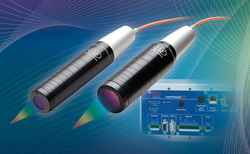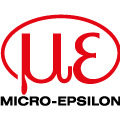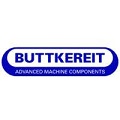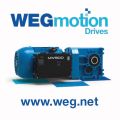
Posted to News on 18th Apr 2013, 12:40
High-precision measurement on diffuse and reflective surfaces
Micro-Epsilon is launching a new range of confocal chromatic sensors that offers even higher sensitivity and sub-micrometre resolution, providing significant advantages for users, particularly when it comes to measuring the displacement or position of dark, diffuse, transparent and highly reflective surfaces.

The new confocalDT IFS 2405 series of confocal sensors also benefit from large stand-off distances (up to 100mm), providing users with greater flexibility in terms of the variety of applications in which the sensor can be used. In addition, the tilt angle of the sensor has been increased significantly (up to 34 degrees), which provides better performance when measuring across changing surface features.
IFS 2405 sensors are designed for measurement tasks that require maximum precision - typically research and development tasks, laboratory and medical, semiconductor manufacturing, glass production and plastics processing. As well as distance measurements on reflective and transparent materials, the sensors can also be used for one-sided thickness measurement of clear film, boards or layers. The sensors do not contain any electrical components and so are also suitable for use in ATEX hazardous areas.
Micro-Epsilon's confocalDT IFS 2405 series comprises five sensors with measuring ranges from 0.3mm up to 30mm. Spot diameter is from 6 µm up to 50 µm. Maximum resolution is 0.01 µm and maximum linearity is 0.3 µm.
The confocal chromatic measuring principle works by focusing polychromatic white light onto the target surface using a multi-lens optical system. The lenses are arranged in such a way that the white light is dispersed into a monochromatic light by controlled chromatic deviation (aberration). A certain deviation (specific distance) is assigned to each wavelength by a factory calibration. Only the wavelength that is exactly focussed on the target surface or material is used for the measurement. This light reflected from the target surface is passed through a confocal aperture onto a spectrometer, which detects and processes the spectral changes.
Both diffuse and specular surfaces can be measured using the confocal chromatic principle. However, the majority of applications in which the sensor is selected are when the target is highly polished or even mirrored. With transparent materials such as glass or plastic, a one-sided thickness measurement can be achieved along with the distance measurement to either surface. Also, because the emitter and receiver are arranged in one axis, shadowing is avoided.
Confocal measurement offers nanometre resolutions and operates almost independently of the target material. A very small, constant spot size through the measurement range of the sensor is achieved. Miniature radial and axial confocal versions are available for measuring the internal surfaces of drilled or bored holes, as well as the measurement of narrow apertures, small gaps and cavities.
Powerful controllers
The new confocalDT IFS 2405 series is offered alongside Micro-Epsilon's confocalDT 2451 and confocalDT 2471 controllers. These controllers offer a range of technical benefits, including faster measuring rates, up to four times better signal-to-noise ratios, and up to 100 times faster real-time surface compensation for difficult-to-measure surfaces.
Micro-Epsilon's controllers are designed for use in OEM, continuous production and R&D test applications across all industry sectors, particularly semiconductor, glass, plastics, medical and other high-precision applications. As well as measuring distance to virtually any target material, the controllers are suitable for measuring the thickness of single and multi-layer transparent materials, as well as for the monitoring of liquid fill levels, inspection of bore holes (or small cavities), and for measuring transparent, reflecting or matt surfaces.
These controllers have a rugged industrial design and use a high performance CCD array as the sensor element. The confocalDT 2451 utilises a white LED as the light source, which enables measuring rates up to 10kHz. The confocalDT 2471 provides up to 70kHz measuring rate using an external Xenon light source. Both controllers are provided with Ethernet, EtherCAT, RS422 and analogue output interfaces.
Traditionally, most confocal controllers perform poorly when trying to compensate for difficult and changing surface conditions, particularly in high-speed surface-scanning tasks. However, the confocalDT 2451 and 2471 controllers use newly developed software algorithms based on Micro-Epsilon's experience in optical laser sensor design. These algorithms enable the new controllers to compensate in real time, giving users the ability to scan surfaces very rapidly and at high resolution. The controllers also provide high-speed triggering that allows them to be synchronised with encoders and other motion control devices. The result is a controller that provides more stable, higher accuracy measurements, down to nanometre resolution if required.
Follow the link for more information about Micro-Epsilon's confocalDT IFS 2405 series or email [email protected].
No. 1 Shorelines Building
Shore Road
CH41 1AU
UNITED KINGDOM
+44 (0)151 355 6070






























